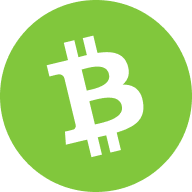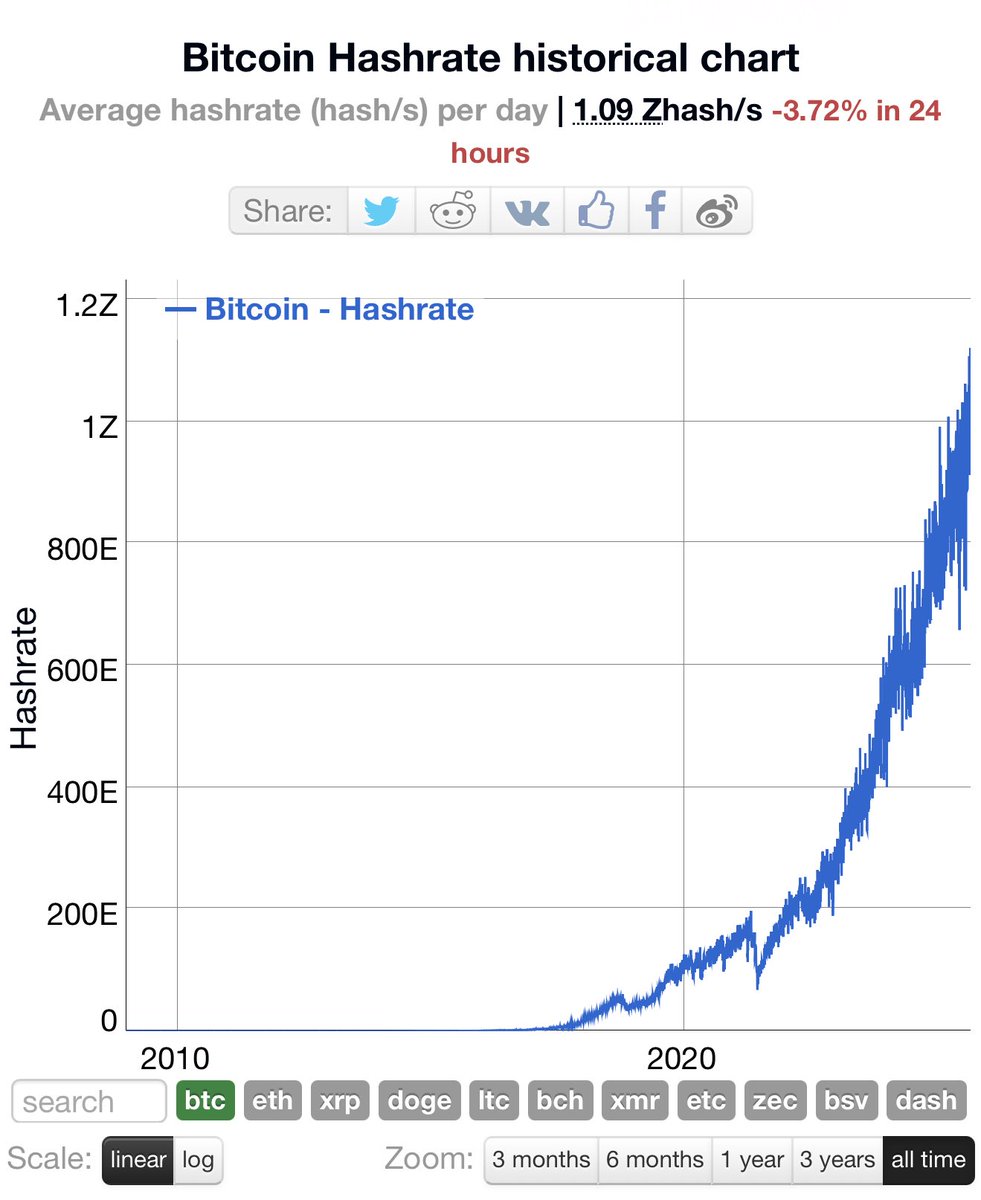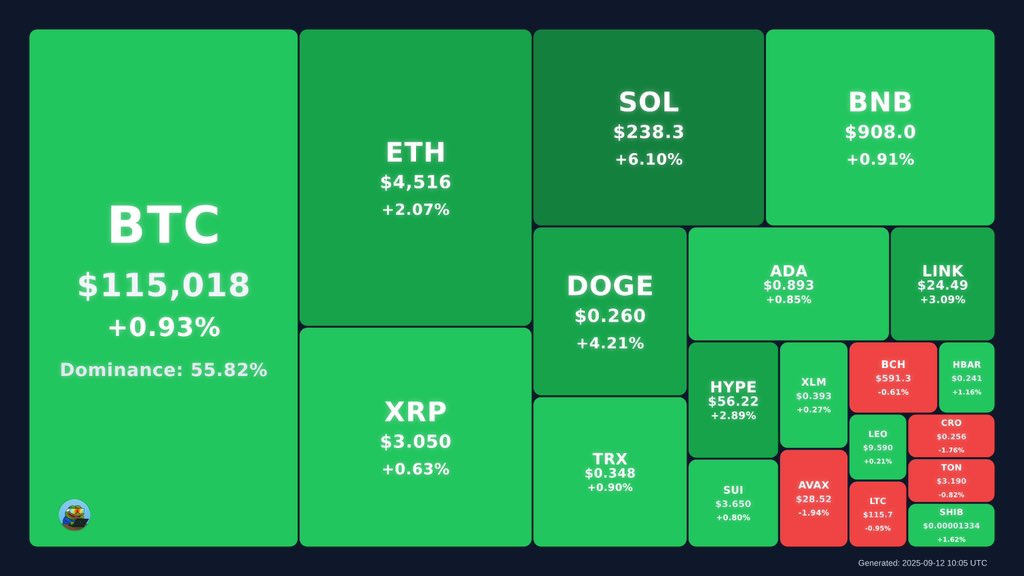Bitcoin Cash price
in GBPCheck your spelling or try another.


About Bitcoin Cash
Disclosures
Bitcoin Cash risk
This material is for informational purposes only and is not exhaustive of all risks associated with trading Bitcoin Cash. All crypto assets are risky, there are general risks in investing in Bitcoin Cash. These include volatility risk, liquidity risk, demand risk, forking risk, cryptography risk, regulatory risk, concentration risk & cyber security risk. This is not intended to provide (i) investment advice or an investment recommendation; (ii) an offer or solicitation to buy, sell, or hold crypto assets; or (iii) financial, accounting, legal or tax advice. Profits may be subject to capital gains tax. You should carefully consider whether trading or holding crypto assets is suitable for you in light of your financial situation. Please review the Risk Summary for additional information.
Investment Risk
The performance of most crypto assets can be highly volatile, with their value dropping as quickly as it can rise. You should be prepared to lose all the money you invest in crypto assets.
Lack of Protections
Crypto assets are largely unregulated and neither the Financial Services Compensation Scheme (FSCS) nor the Financial Ombudsman Service (FOS) will protect you in the event something goes wrong with your crypto asset investments.
Liquidity Risk
There is no guarantee that investments in crypto assets can be easily sold at any given time.
Complexity
Investments in crypto assets can be complex, making it difficult to understand the risks associated with the investment. You should do your own research before investing. If something sounds too good to be true, it probably is.
Concentration Risk
Don't put all your eggs in one basket. Putting all your money into a single type of investment is risky. Spreading your money across different investments makes you less dependent on anyone to do well. A good rule of thumb is not to invest more than 10% of your money in high-risk investments.
Five questions to ask yourself
- Am I comfortable with the level of risk? Can I afford to lose my money?
- Do I understand the investment and could I get my money out easily?
- Are my investments regulated?
- Am I protected if the investment provider or my adviser goes out of business?
- Should I get financial advice?
Bitcoin Cash’s price performance
Bitcoin Cash in the news
Bitcoin Cash (BCH) gained 3.8% and Hedera (HBAR) rose 2.7%, leading the index higher from Wednesday.
Tuesday’s filings follow paperwork on Monday to convert the Grayscale Chainlink Trust into an exchange-traded fund.
Bitcoin Cash (BCH) was also among the top performers, up 3.4% from Tuesday.
Tether has decided that it will no longer freeze smart contracts on Omni Layer, Bitcoin...
Bitcoin Cash (BCH) was also among the top performers, rising 2.7% from Tuesday.
Cardano (ADA) was also an underperformer, declining 1.8% from Monday.
Bitcoin Cash on socials



Guides

Bitcoin Cash on OKX Learn
Bitcoin Cash FAQ
The price of Bitcoin Cash directly correlates with the price of Bitcoin. Hence, any fall or rise in the latter causes a corresponding price action for the former. BCH price is also impacted by multiple factors, including the token's fixed supply, adoption efforts, and regulatory changes regarding cryptocurrencies.
Easily buy BCH tokens on the OKX cryptocurrency platform. Available trading pairs in the OKX spot trading terminal include BCH/USDT, BCH/USDC, and BCH/BTC.
You can also buy BCH with over 99 fiat currencies by selecting the "Express buy" option. Other popular crypto tokens, such as Bitcoin (BTC), Ethereum (ETH), Tether (USDT), and USD Coin (USDC), are also available.
Swap your existing cryptocurrencies, including XRP (XRP), Cardano (ADA), Solana (SOL), and Chainlink (LINK), for BCH with zero fees and no price slippage by using OKX Convert.
To view the estimated real-time conversion prices between fiat currencies, such as the USD, EUR, GBP, and others, into BCH, visit the OKX Crypto Converter Calculator. OKX's high-liquidity crypto exchange ensures the best prices for your crypto purchases.
We provide a highly secure and multi-chain OKX Web3 Wallet with all OKX accounts. It can safely store BCH or any other cryptocurrency for as long as needed. In addition, the OKX Web3 Wallet features bank-grade security and inbuilt access to hundreds of decentralized applications (DApps) and the OKX NFT Marketplace.
Dive deeper into Bitcoin Cash
Bitcoin Cash (BCH) is a cryptocurrency payment network created to implement Bitcoin's core idea of facilitating peer-to-peer payments for everyday transactions rather than becoming a preferred store of value like Bitcoin (BTC).
Despite being the gold standard of the crypto world, Bitcoin has some inherent problems that are widely debated in the public domain. Its limited 1 MB block size is the most well-known of these, making it unscalable. This shortcoming has caused a notable rise in Bitcoin's transaction fees.
A section of the Bitcoin network's participants had been pushing for larger blocks as early as 2010. However, seeing no result from their efforts, this group hard-forked Bitcoin Cash from the Bitcoin blockchain on August 1, 2017. Bitcoin Cash was launched with an 8 MB block size limit, later expanding to 32 MB in 2018.
The main aim of Bitcoin Cash is to fulfill the original purpose of Bitcoin. Its team constantly strives to make BCH a cheaper, faster, scalable, and easy-to-use peer-to-peer electronic cash system. It also doesn't hold back regarding increasing block sizes or making other updates to keep the project well-aligned with its core objective. Bitcoin Cash works like Bitcoin, as it can be easily transferred from one individual to another without financial intermediaries or censorship.
BCH token holders can send and receive BCH through their digital wallets using the unique public keys associated with the latter. As a result, BCH transactions are settled almost instantly and involve a lower average transfer fee. Some well-known businesses that accept Bitcoin Cash for their goods and services are Twitch, Newegg, CyberGhost VPN, SlingTV, Namecheap, airBaltic, ALFAtop, Menufy, SatoshiDice, CoinRemitter, and eGifter.
How does BCH work?
Bitcoin Cash's workings are quite similar to that of Bitcoin. The primary difference is the bigger block size, allowing higher transaction speeds and lower fees. That said, larger block sizes make audit and storage expensive and lead to difficulties downloading a copy of the blockchain.
Like Bitcoin, Bitcoin Cash also uses a Proof of Work (PoW) consensus model for securing its network. Entities called miners compete against each other to process transactions and add new blocks to the Bitcoin Cash blockchain. They employ complex computing devices for this purpose. The hashing algorithm of Bitcoin Cash is SHA-256, the same as that of Bitcoin.
One of the biggest differentiators between Bitcoin and Bitcoin Cash is the "difficulty adjustment" for mining new blocks. While the Bitcoin software adjusts this difficulty factor every 2,016 blocks, it's done every 10 minutes in Bitcoin Cash.
The frequent updates aim to provide a clearer understanding of the required computing power for BCH mining. Miners of Bitcoin Cash receive rewards in the form of new BCH coins and transaction fees for their efforts in adding blocks. Bitcoin Cash also supports smart contracts, enabling the creation of decentralized applications (DApps) on its blockchain. Notable DApps built on Bitcoin Cash include CashFusion, CashScript, eatBCH, Flipstarter, AnyHedge, Libauth, Spedn, and Fountainhead.
Bitcoin Cash has a decentralized, low-cost, high-throughput, easy-to-use network for BCH transactions. Any changes required on its mainnet involve many nodes and a high level of consensus. This restricts trial-and-error processes, which are a must for innovation.
Launched in July 2021, Smart Bitcoin Cash or SmartBCH is a side chain of Bitcoin Cash created to explore new ideas and unlock new possibilities. It's compatible with Web3 API and Ethereum's EVM, offering high throughput for DApps, in a secure, decentralized, and fast environment. The side chain doesn't have any new tokens. Its native token is BCH, and all gas fees on the network are paid in BCH.
BCH price and tokenomics
Like Bitcoin, the maximum supply of Bitcoin Cash has a hard cap of 21 million coins. Of these, 19.17 million were in circulation at the time of writing. There are 17.12 million BCH holding addresses at press time, with the top 10 addresses holding nearly 2.3 million BCH. When Bitcoin Cash hard forked from Bitcoin, almost 16.5 million BCH coins were distributed amongst existing BTC holders at 1:1.
Every time a BCH miner successfully adds a new block to the Bitcoin Cash blockchain, s/he is awarded BCH coins as a reward. This process brings new BCH coins into the circulating supply. Bitcoin Cash has a deflationary mechanism called "halving," like Bitcoin. As per this mechanism, the block mining rewards are halved every 210,000 blocks or approximately four years. It shares Bitcoin's transaction history in this regard up to August 1, 2017, the day of its launch.
The last Bitcoin Cash halving happened in April 2020, which reduced the mining rewards from 12.5 BCH per block to 6.25 BCH. The next halving event is expected to occur in 2024, reducing the BCH mining reward to 3.125 BCH per block.
BCH developments
The most significant event in Bitcoin Cash's history was the 2018 hard fork, resulting in the creation of Bitcoin SV (BSV) on November 15, 2018. This split led to a significant drop in BCH's price from $444 to an all-time low of $76 on December 16, 2018. The hard fork emerged as a "civil war" between two competing camps within the Bitcoin Cash ecosystem. One camp, led by Roger Ver and Bitmain's Jihan Wu, supported the Bitcoin ABC software, maintaining a 32 MB block size. In contrast, the other camp, led by Craig Steven Wright and Calvin Ayre, favored Bitcoin SV with a 128 MB block size.
Another significant development for Bitcoin Cash occurred in March 2020 when Tether (USDT) stablecoin was launched on its blockchain through the SLP (simple ledger protocol) token standard. This implementation allowed users to transact USDT on the Bitcoin Cash blockchain alongside networks like EOS, Ethereum, Tron, Algorand, Liquid Network, and Omni.
About the founders
Network participants and miners collectively founded Bitcoin Cash in the Bitcoin ecosystem. These included prominent names like Roger Ver, Amaury Sechet, Bitmain, ViaBTC, and Craig Wright.
All these participants were against the proposed Segwit2x upgrade on Bitcoin, which meant increasing its capacity. They preferred increasing Bitcoin's block size to 8 MB instead. However, unable to fulfill their demand, this group launched a hard fork of Bitcoin on August 1, 2017, and named it Bitcoin Cash.
Disclaimer
OKX does not provide investment or asset recommendations. You should carefully consider whether trading or holding digital assets is suitable for you in light of your financial condition. Please consult your legal/tax/investment professional for questions about your specific circumstances. For further details, please refer to our Terms of Use and Risk Warning. By using the third-party website ("TPW"), you accept that any use of the TPW will be subject to and governed by the terms of the TPW. Unless expressly stated in writing, OKX and its affiliates (“OKX”) are not in any way associated with the owner or operator of the TPW. You agree that OKX is not responsible or liable for any loss, damage and any other consequences arising from your use of the TPW. Please be aware that using a TPW may result in a loss or diminution of your assets. Product may not be available in all jurisdictions.





